The gym, with its iron jungle of weights and machines, promises transformation. Each rep and set, each bead of sweat falling to the floor, tells a story of resilience, strength, and growth. But where should you start on this profound journey? The answer lies in mastering the fundamentals—those exercises that sculpt not only the body but also the spirit. Let’s delve into five timeless and effective exercises that elevate your fitness game.
1. The Deadlift
What Makes the Deadlift Supreme
The deadlift is the king of all exercises. It mimics life, teaching us to lift our burdens and rise stronger. This compound movement engages multiple muscle groups, from your hamstrings to your back, making it a full-body powerhouse.
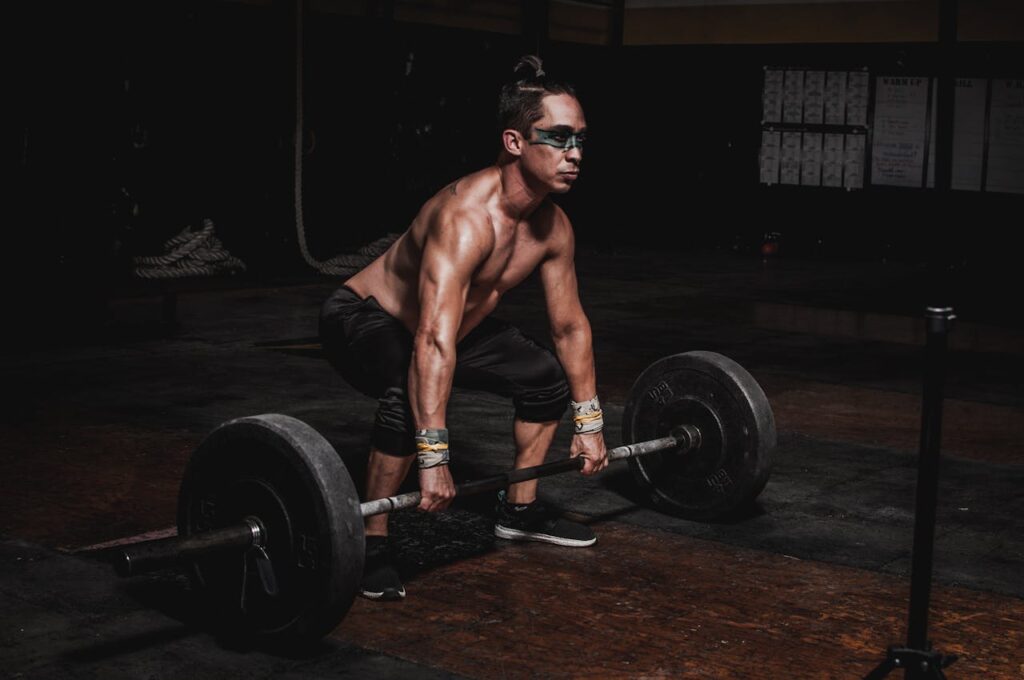
How to Perform the Deadlift Correctly
The Role of Form and Posture
Stand tall with the barbell at your feet. Bend your knees slightly, keeping your back straight and chest proud. Grip the bar with hands shoulder-width apart, engage your core, and push through your heels as you lift the barbell off the ground. Keep the motion controlled, lowering the bar in the same fluid manner.
Common Mistakes to Avoid
Avoid rounding your back or jerking the weight upward. Both errors invite injury and diminish the exercise’s effectiveness.
Benefits of the Deadlift
Deadlifts enhance your posture, build core strength, and ignite calorie burn. They teach you the art of lifting with precision and courage.
2. The Bench Press
The Science Behind the Bench Press
The bench press is the epitome of upper-body strength. It targets the chest, shoulders, and triceps, creating symmetry and power.
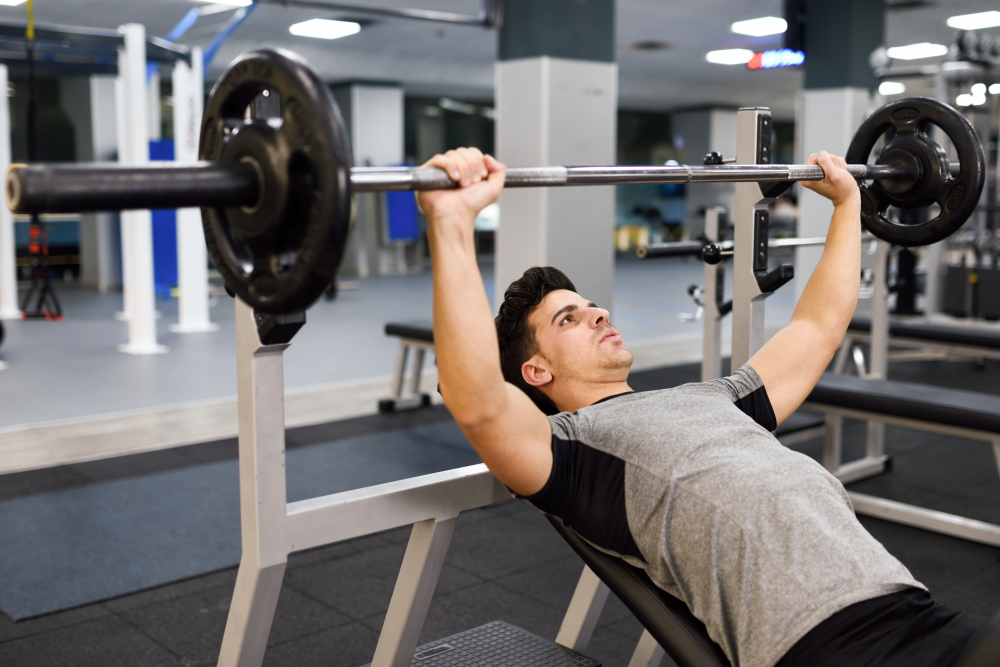
Technique: Achieving Precision
Proper Grip and Control
Lie back on the bench, feet flat on the ground. Grip the bar just wider than shoulder-width. Lower it to your chest slowly, then push it upward explosively.
Aligning Your Core and Breathing
Engage your core and exhale forcefully as you press the bar upward. Controlled breathing is the secret weapon here.
Why the Bench Press Builds Strength and Confidence
Beyond aesthetics, the bench press boosts functional strength, empowering you in daily activities and enhancing your gym performance.
3. The Squat
The Foundation of Leg Strength
Squats are the bedrock of lower-body training. They forge powerful legs and improve mobility and balance.
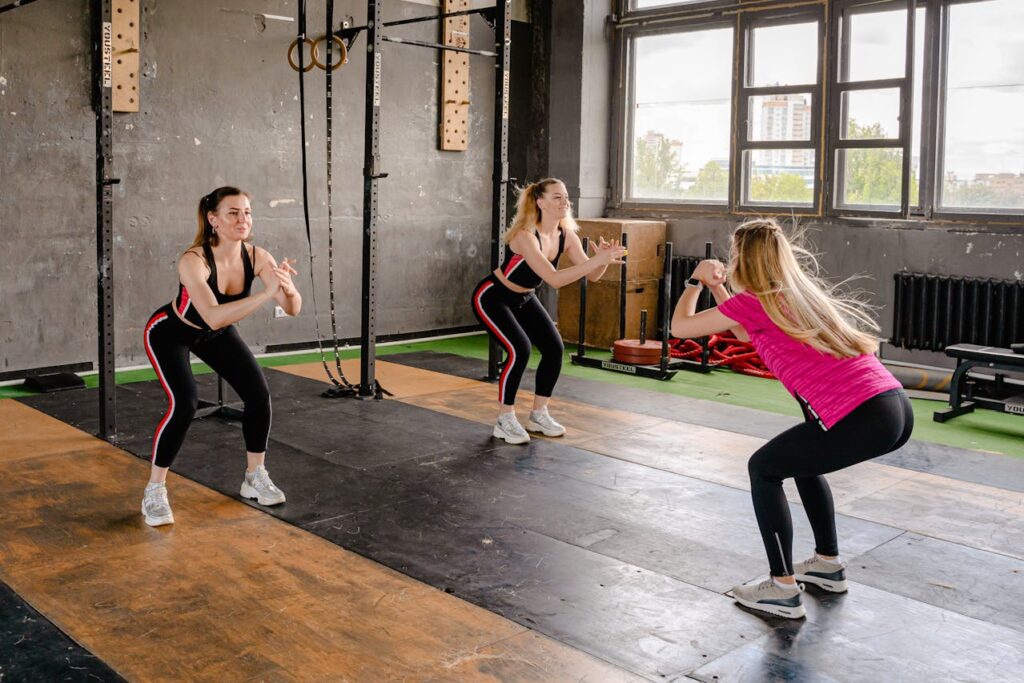
Mastering the Art of the Squat
Body Positioning for Safety
Position your feet shoulder-width apart. Lower your hips as if sitting back into a chair, keeping your chest up and knees aligned with your toes.
Depth and Range of Motion
Aim for a full range of motion, ensuring your thighs are parallel to the ground. Proper depth maximizes muscle activation.
Physical and Mental Gains from Squats
Squats challenge you to push through discomfort, building resilience along with muscle.
4. The Pull-Up
A Test of True Upper Body Power
Pull-ups are a raw measure of upper-body strength. They demand control and determination, engaging the back, arms, and core.
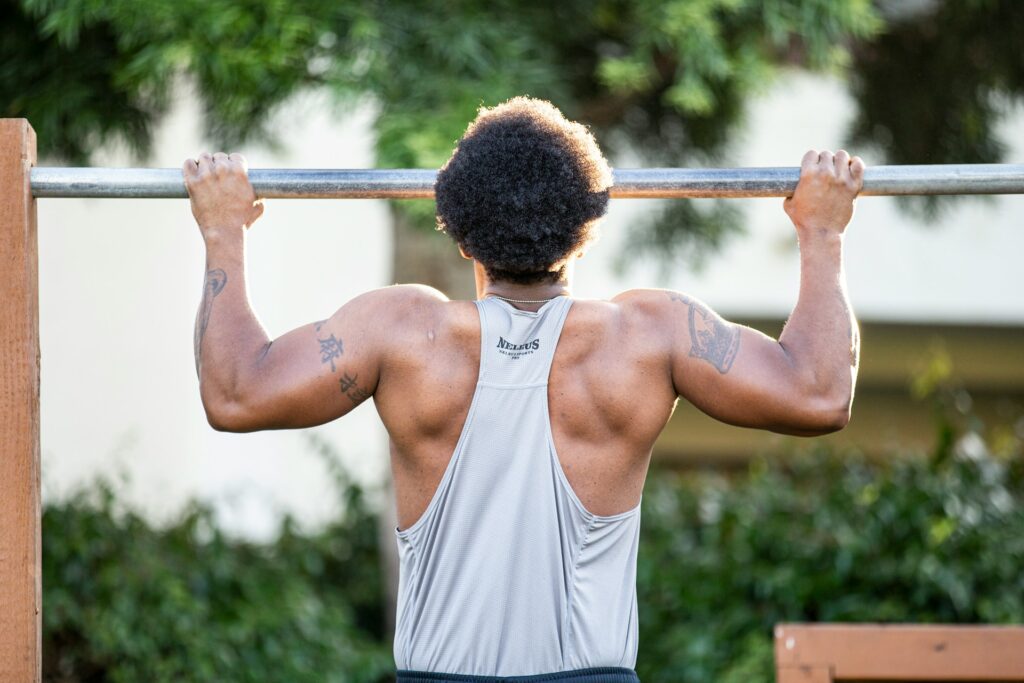
Steps to Perfecting the Pull-Up
Developing Grip Strength
Start with a strong overhand grip on the bar. Ensure your hands are shoulder-width apart.
Engaging the Back Muscles
Focus on pulling your chest to the bar rather than simply lifting your chin. This ensures the back muscles do the heavy lifting.
Benefits Beyond Strength
Pull-ups improve posture, enhance grip strength, and build an aura of confidence.
5. The Plank
The Simplicity of Core Strength
The plank may look simple, but its impact on core stability is profound. It’s the foundation of every movement you perform.
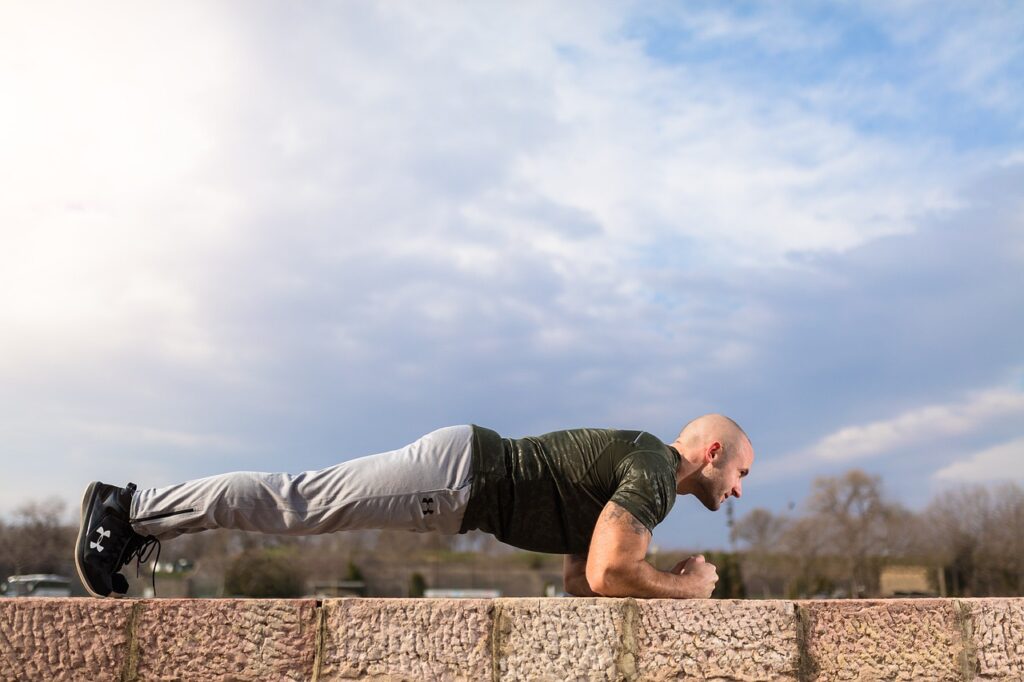
Variations to Level Up Your Plank
Side Plank for Obliques
Turn onto one side, balancing on one forearm. This variation targets the obliques, creating a well-rounded core.
Dynamic Plank for Stability
Incorporate arm lifts or leg movements to challenge your balance and stability.
Long-Term Core Benefits
A strong core enhances overall athleticism and reduces the risk of injury, making the plank a staple in your routine.
Consistency is the secret ingredient to success in fitness. These five exercises, when performed with dedication and proper form, will lead you to strength, confidence, and transformation. Every rep is a step forward; every drop of sweat is a testament to your resilience. Embrace the journey, for it is as rewarding as the destination.
FAQs
How often should I perform these exercises?
Aim for 2-3 times a week, incorporating them into a balanced workout routine.
Can beginners try these workouts?
Absolutely! Start with lighter weights or assisted variations and progress gradually.
What equipment do I need for these exercises?
A barbell, dumbbells, and a sturdy bench are key. Pull-up bars and mats are also helpful.
How can I avoid injuries while exercising?
Focus on proper form, warm up thoroughly, and listen to your body’s limits.
Are these exercises suitable for all fitness goals?
Yes! Whether you aim to build strength, lose weight, or improve endurance, these exercises adapt to your goals.
